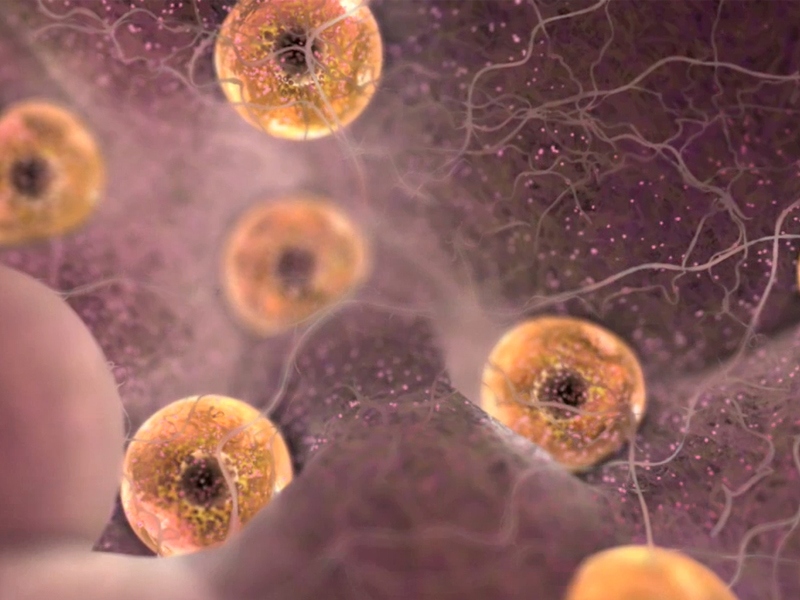Unexplained infertility

Infertility is the inability of a couple to conceive a child during the year, during which a man and a woman had regular sex life and did not use contraception. This is a severe syndrome that affects about 20% of married couples in Ukraine. The causes of this condition may be health problems in both spouses.
The female factor of infertility includes:
- hormonal disorders (increased content of male hormones, stressful situation, severe weight loss, obesity)
- trauma and damage to the uterus or appendages
- endometriosis
- congenital disorders of the reproductive organs
- polycystic ovary syndrome
- age
- frequent abortions or surgery on the pelvic organs
- oncological diseases
In turn, male infertility occurs no less frequently than female infertility, about 46-48% of cases.
Adverse factors can be:
- varicocele
- hormonal disorders
- inadequacy of sperm
- anomalies in the development of the reproductive system
- obstruction of the seminal duct
- genital trauma
- neuropsychic factor
- neoplasms
But there are cases when, even after a thorough examination of both spouses, the doctor cannot establish the exact reason for the impossibility of conceiving a child. Then the diagnosis of unexplained infertility is established. It is also called undetermined infertility or idiopathic.
It is placed when a woman has a full menstrual cycle, hormonal tests are normal, the fallopian tubes are passable, the uterine cavity is unremarkable, there are no symptoms and endometriosis. For a man, everything is simpler, it is enough to have a stable erection, the sperm counts correspond to the norm, and there are no antisperm antibodies in the blood. The diagnosis of “idiopathic infertility” is the fact that the diagnosis is still imperfect. Although 40-50 years ago, such a diagnosis was written in half of all cases, whereas today it is no more than 10%. But in any case, if a couple cannot have children, they need to undergo a full diagnosis.
A woman is prescribed:
- gynecological examination;
- general blood and urine tests;
- blood tests for hormones;
- ultrasound of the small pelvis;
- hysterosalpingography;
- laparoscopy;
Men need fewer examinations and take less time than women. Therefore, it is always recommended to start with an examination of man.
He needs to do:
- spermogram
- hormonal blood test
- blood test for genetic causes
- genital ultrasound
Infertility of unclear genesis suggests that the current diagnostics is not able to establish all the causes of the pathology of the human reproductive system and we have something to strive for.
Sometimes this is caused by the incompatibility of partners at the biological or immunological level. This is justified by situations when the spouses did not manage to conceive a child for a long time, and after the dissolution of the marriage, each of them soon has children.
Specialists identify several factors that may underlie idiopathic infertility:
- Irregular ovulation
- Genetic pathologies at the chromosomal level
- Formation of antibodies that destroy the egg
- Violation of the motor activity of the fallopian tubes
- Not regular sexual activity
- Violation of the penetration of sperm into the egg
- Immunological incompatibility of the pair
If a married couple was diagnosed with this, then this does not mean that you need to despair and stop.
Doctors can offer spouses several methods of treatment, these are:
- Ovarian stimulation. This is a pharmacological therapy with the aim of causing the development of ovarian follicles and ovulation.
- Intrauterine insemination with spouse’s sperm. Fertilization of an egg by artificially injecting the partner’s mature sperm directly into the woman’s uterine cavity, previously prepared with hormonal preparations).
- In Vitro Fertilization – IVF. A method in which the stages of conception and early development of the embryo occurs outside the mother’s body, but with the help of a reproductive specialist in a laboratory.
- Surrogacy. Carrying a child by a woman for other persons who will become his parents after birth.
The success of treatment, in terms of pregnancy, is different. Therefore, when choosing a method of treatment, the issue is resolved individually with the doctor. Assisted reproduction techniques are considered essential in infertility therapy. And in most cases, only they are the only effective remedy.


